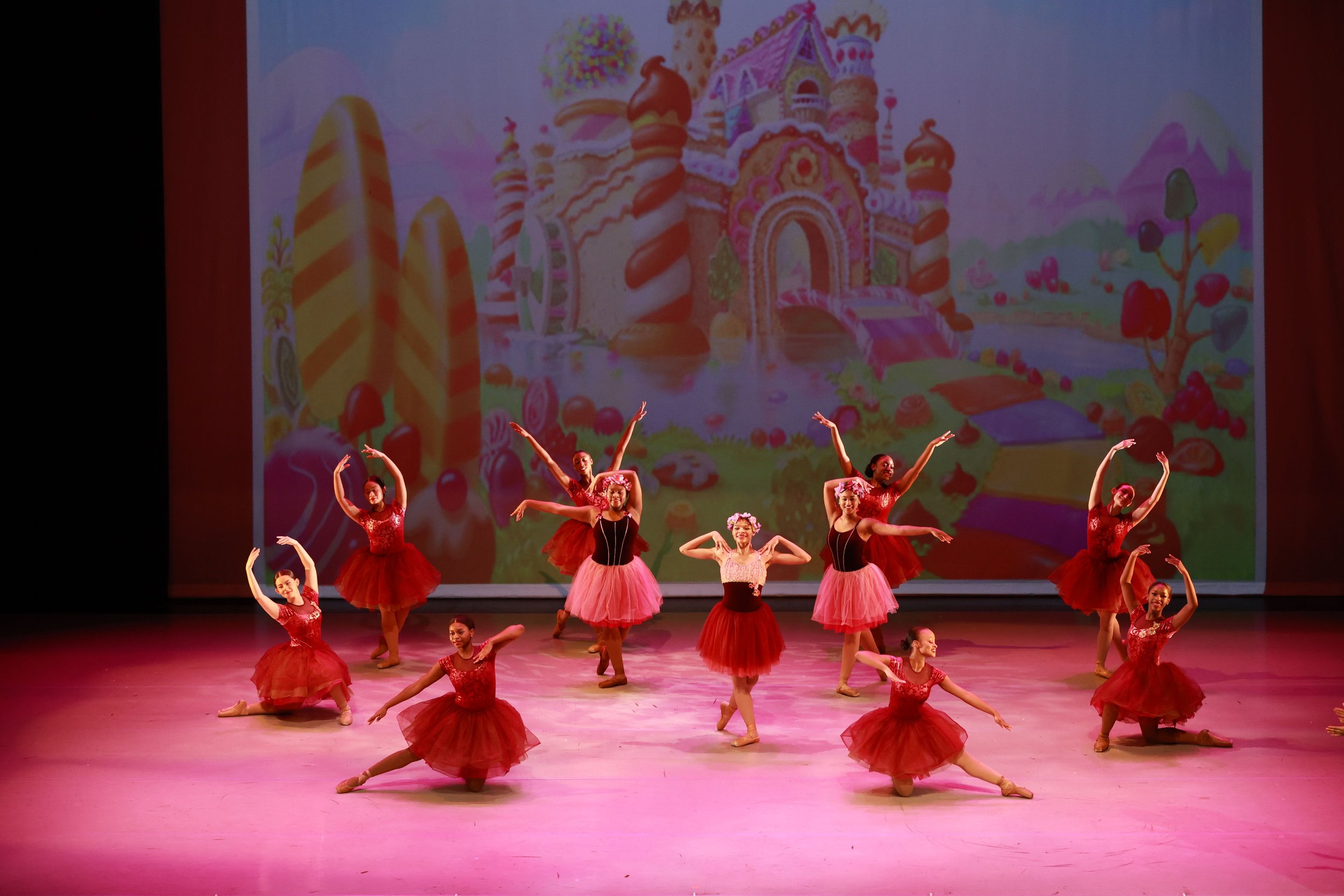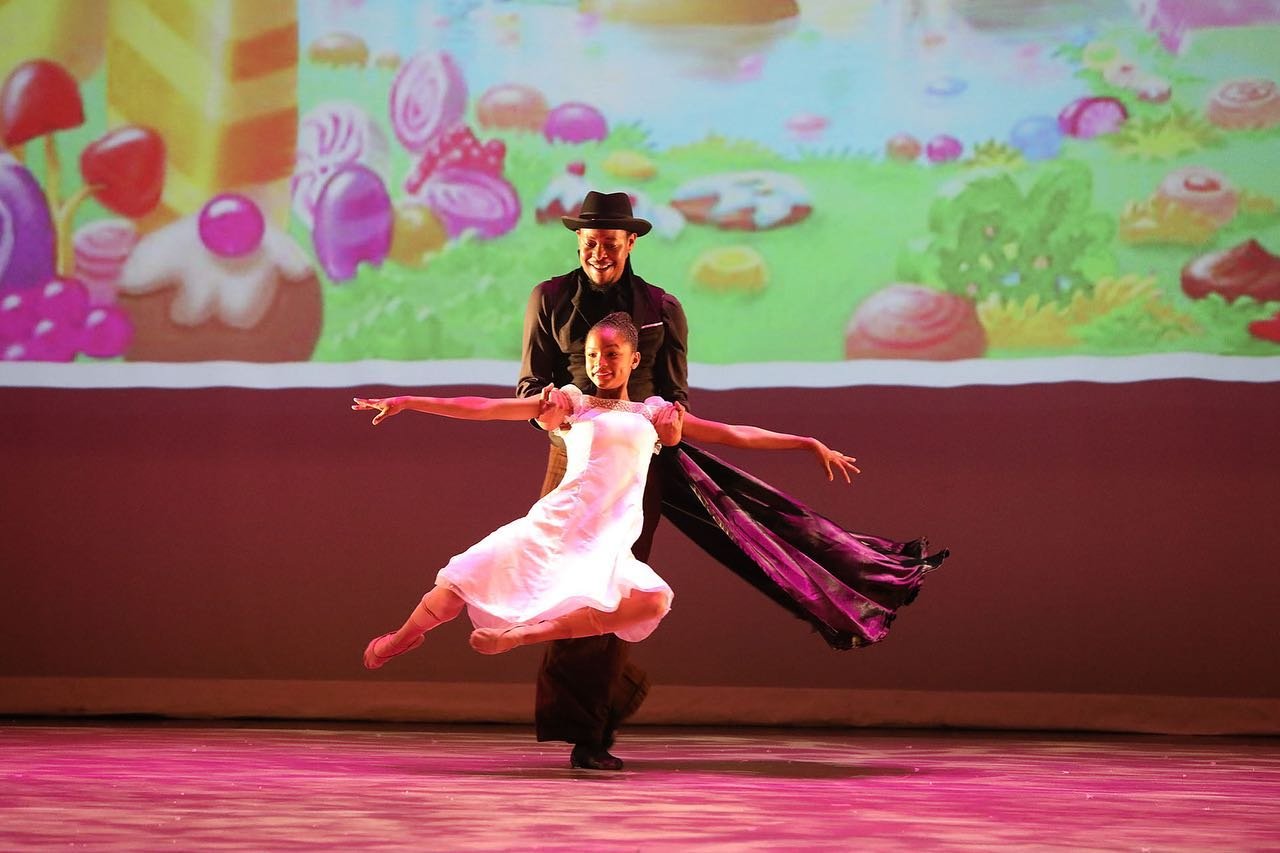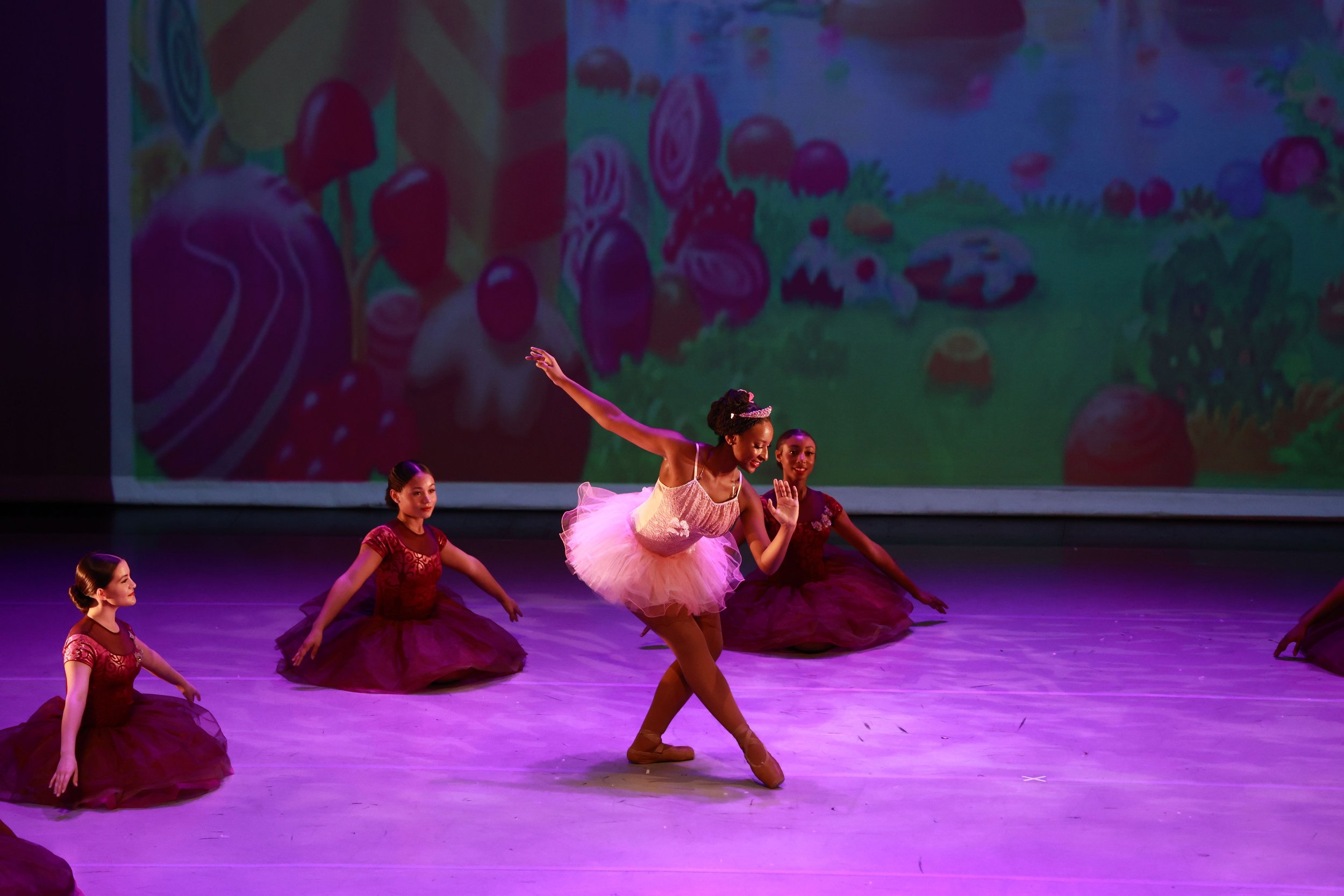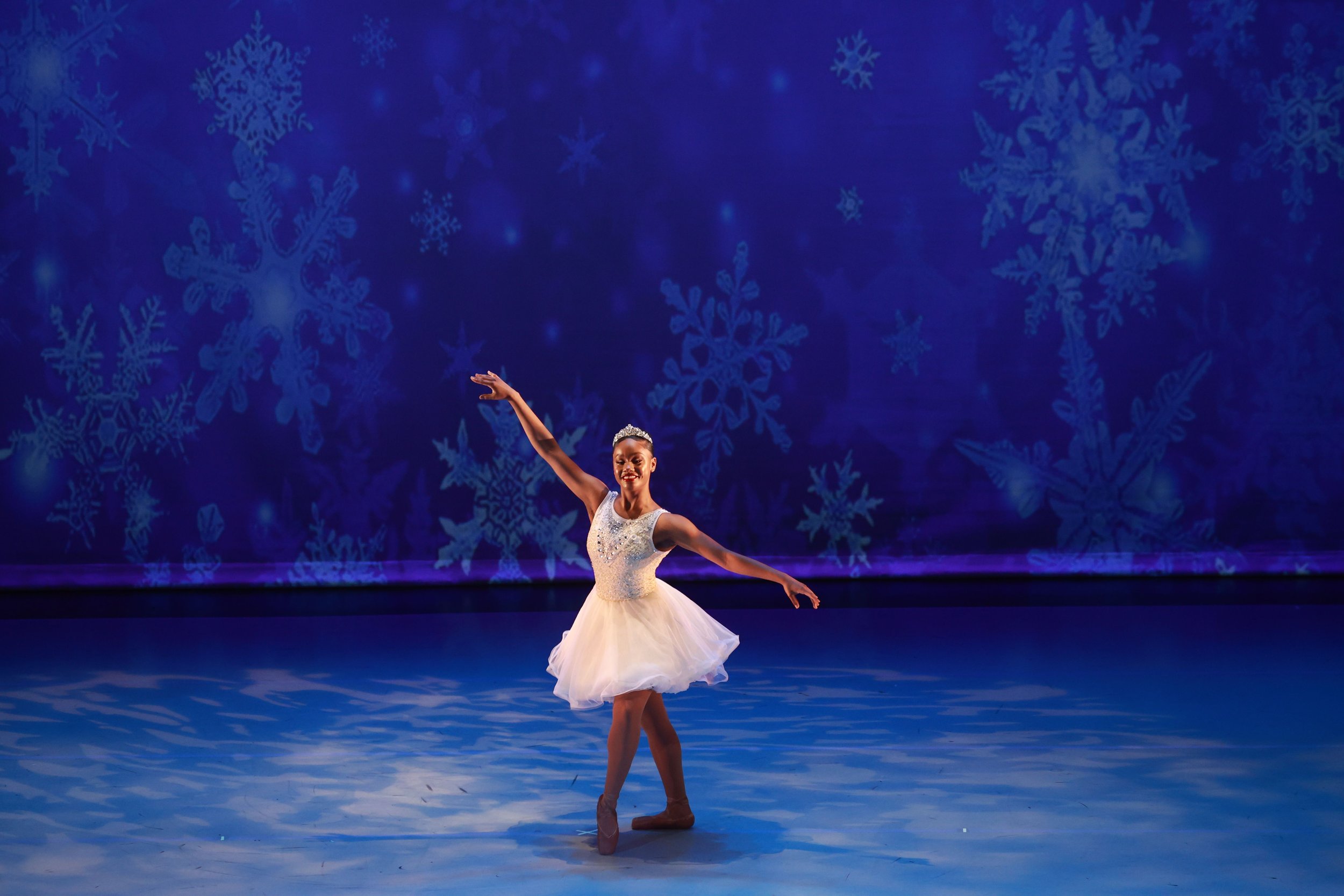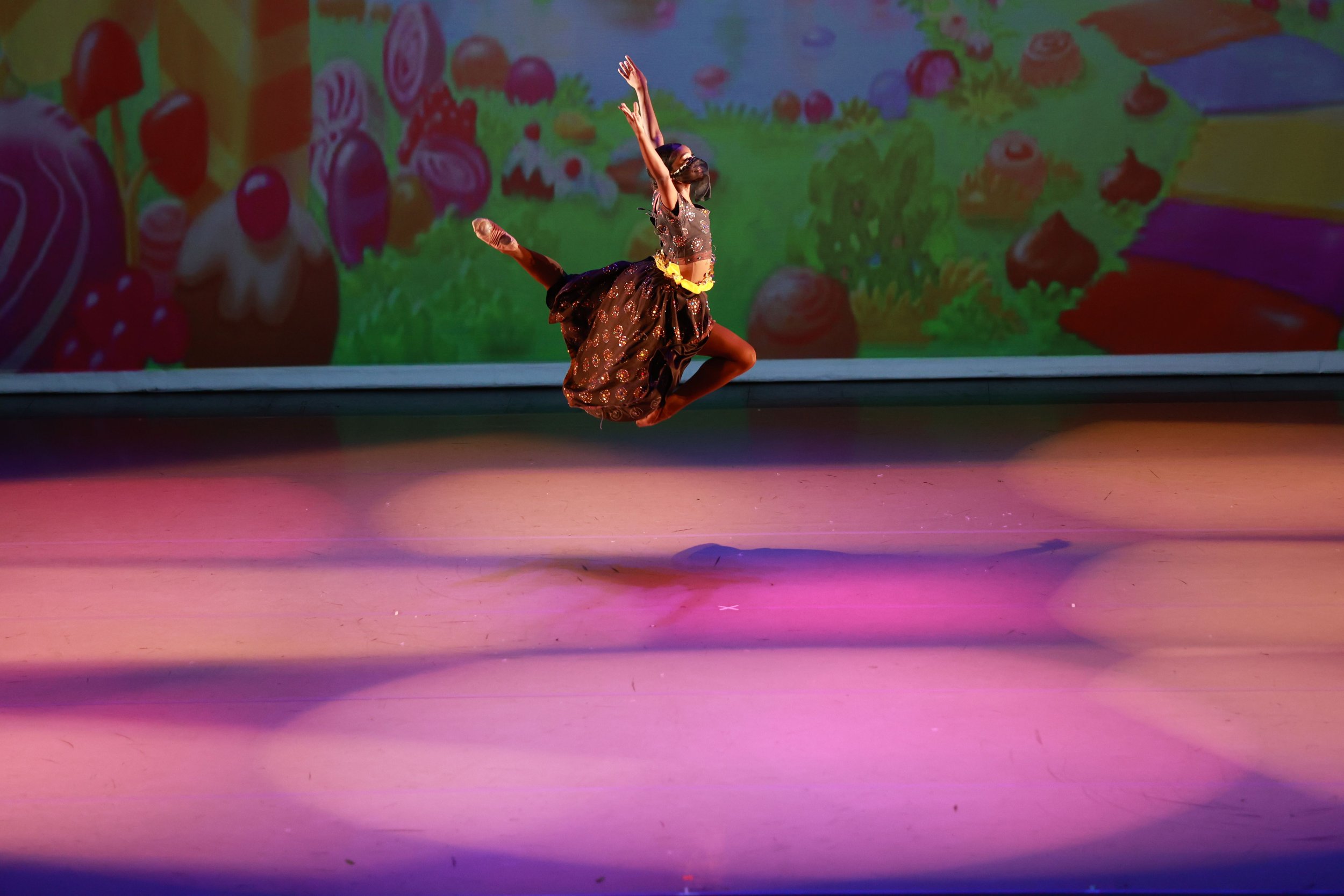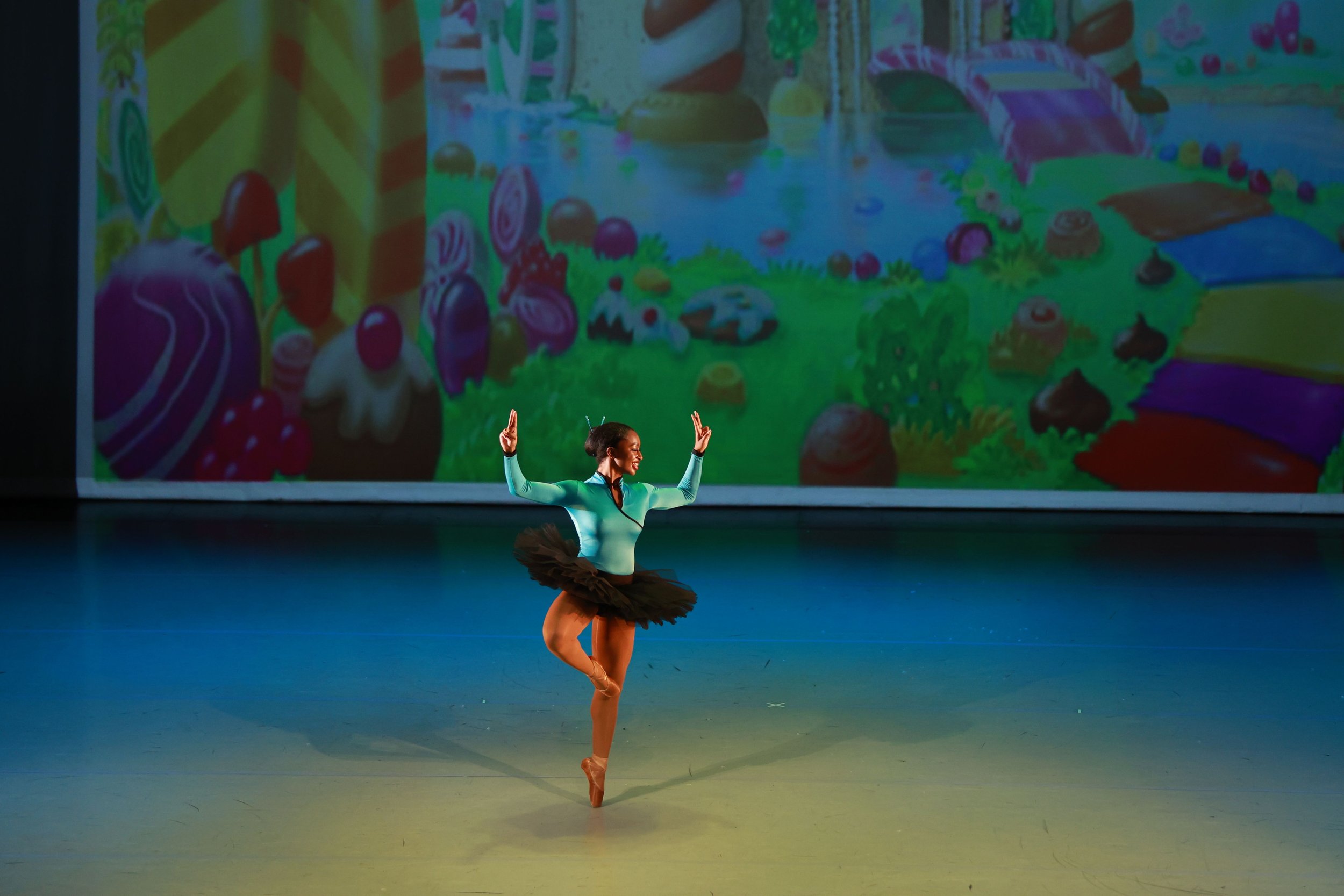Espresso Nutcracker @ Dallas Black Dance Academy
Photos by Amitava Sarkar
—Review by Jan Farrington
Dressed in a simple white dress, the young Clara (Aniya Whitaker) floats across the floor in fine, light-footed ballet form: toes pointed, arms graceful. She’s dancing to the music of the Nutcracker…but the beat is Duke Ellington, not Tchaikovsky—and this jazz-infused performance is enchanting.
Dallas Black Dance Academy’s Espresso Nutcracker is a showcase for its students, and for the choreography created by various artists connected to the Academy—as faculty members, and/or as dancers and creative staff of the Dallas Black Dance Theatre. (DBDA, founded by Ann Williams in 1973, is the official dance academy for the professional company.) We couldn’t attend the Academy’s performance at the Majestic Theatre, but caught it in a high-quality streaming version.
Onstage NTX generally covers professional shows—but this is a kind of hybrid production of talented students and pros. DBDA director Katricia Eaglin has mixed the familiar Tchaikovsky melodies with some of Duke Ellington’s “riffs” (choosing tunes from his 1960 The Nutcracker Suite that are easily recognizable to the audience). Eaglin wrote original narration for the story, and added a vibrant African dance (choreographed by Daijhia Kirk) that fit perfectly into the lineup of Spanish, Arabian, Chinese, Russian (etc.) dances of the second act.
Adult dancers take the roles of Clara’s parents, Mr. and Mrs. Black (fine and fancy Sean J. Smith and Nycole Ray) and her mysterious godfather, Uncle Drosselmeyer (a very swirly Richard A. Freeman, Jr.). Choreographers included Eaglin, Sierra Noelle Jones, Kirk, Bianca Melidor, Alexandra Newkirk, Sean J. Smith, Jasmine White-Killins, McKinley Willis, and De’Anthony Vaughan.
The student performers seemed engaged and confident, especially in numbers that were a blend of classic ballet and jazz. To watch a young dancer shimmy “en pointe” (or pirouette to a bluesy line of melody) is a delight to the audience—and we hope to the dancer as well. There were too many nicely done performances to mention them all, but the Academy’s older students should be proud of the fine work they did with their “lead” roles in the dances.
Since the pandemic, Dallas Black Dance Academy has been providing multiple ways to access their performances, both live and virtual. Watching dance on a computer screen can be tricky—but this streaming version was bell-clear both in image and sound. As a way to expand the reach of a company or school, this is an excellent addition to the options. Kudos—and happy holidays—to all involved.
For more information: dbdt.com/academy
